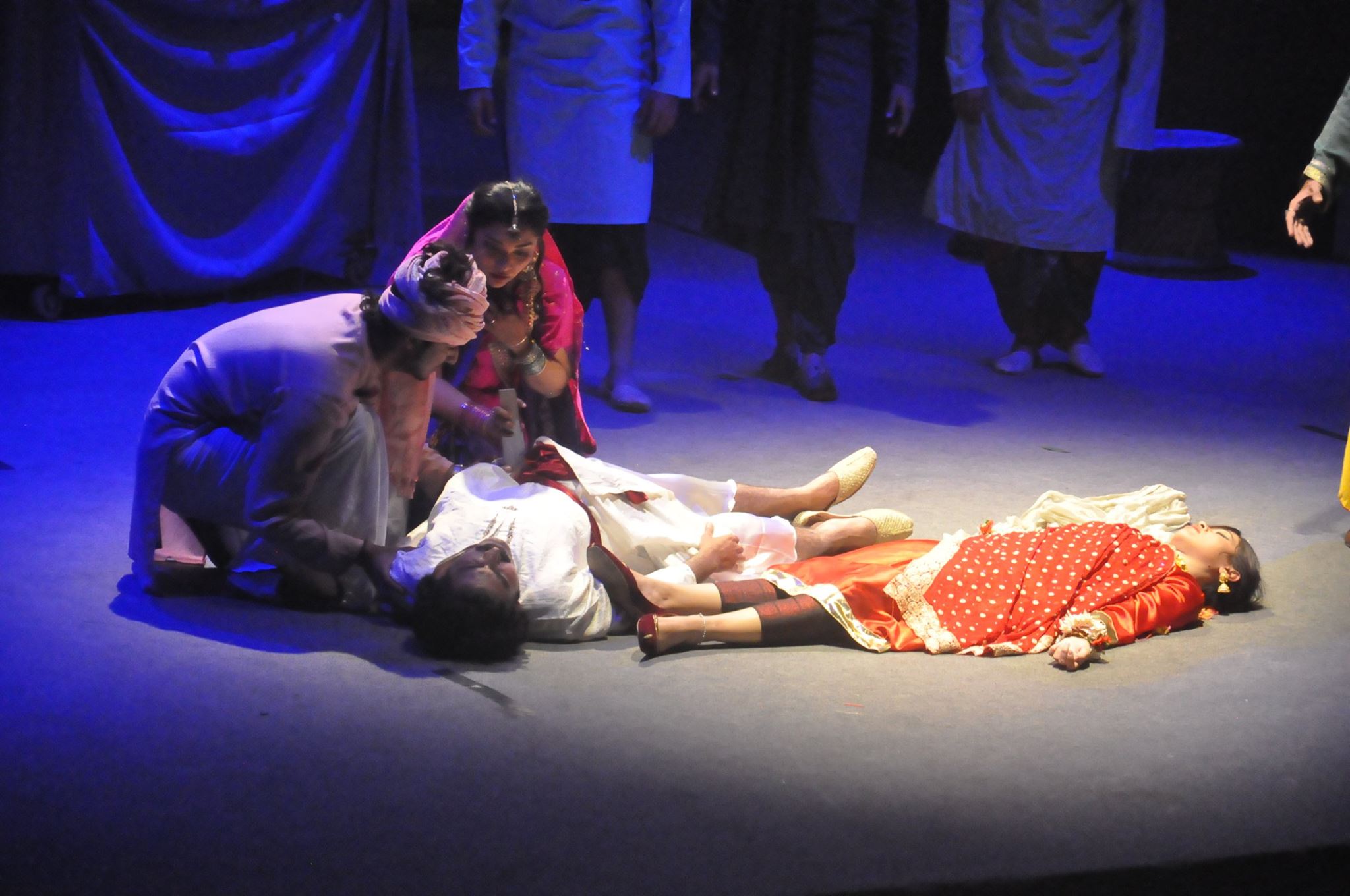
Their timeless tale was brought to life once again at the National Academy of Performing Arts (Napa). Directed by Zarqa Naz, the play starred Saad Fareedi as Ranjha and Marya Saad Fareedi as Heer.
Napa sheds light on child marriages with latest play ‘Raat’
Everyone knows the story of Heer Ranjha but what made the play a success was the strong performances not by the lead actors, but by the supporting cast. Saad (Ranjha) and Marya(Heer) have delivered great performances before, especially the former’s work in Sunil Shankar’s Qusoorwaar. However, they lacked chemistry in this play. Perhaps there should have been more scenes devoted to their romance. That, however, would have added to the duration of the play and required even more effort from its young cast and crew.
Regardless, Saddam Hussain as the antagonist Qeedu stole the show. The character’s handicap and the ability to play victim when he was the perpetrator came off well on stage. However, what was surprising is that the audience found his repetitive lines hilarious, when, in fact, they were supposed to make them hate him.
Characters like Qazi (Samhan Ghazi) and Heer’s friend (Roohi Ahmed) were a good comic relief. However, the audience must despise the evil antagonist for the story to work. It’s understandable when directors add a bit of comedy to keep the audience engaged, but not all stories need it. The presentation of larger-than-life characters in theatre should be strong enough on its own to garner attention and maintain it. Granted, comedy makes it fun but it also tends to dilute the characters.
Diversifying: Napa festival to feature plays in regional languages
Besides that, the clever scene transitions through lighting and narration must be commended. Akbar Ladhani (Ravi) did a tremendous job as an on-stage narrator. He actually made one feel part of the play, as opposed to distracting the audience from the subject matter. Moreover, the use of shehnai for wedding scenes was entertaining and made one feel like breaking into dance.
The script covered almost all the major parts of the classic folktale. The audience may have missed hints of Heer’s death through her dialogues in the play but by the end, the climactic moment actually became all the more impactful, showing silence is the best conveyer of grief.
As the play ended, it wasn’t surprising to see the audience’s applause roaring through the theatre. Some even gave the performance a standing ovation. Even with all its faults, Heer Ranjha came off as a decent showcase of the emerging talent, especially Saad and Hussain, who can go on to do bigger things in the Pakistani entertainment industry.
Have something to add in the story? Share it in the comments below.






1732620609-0/Untitled-design-(9)1732620609-0-270x192.webp)
1732609662-0/Express-Tribune-(5)1732609662-0-270x192.webp)

1732607724-0/Express-Tribune-(4)1732607724-0-270x192.webp)
1732600740-1/Untitled-design-(1)1732600740-1-270x192.webp)






COMMENTS
Comments are moderated and generally will be posted if they are on-topic and not abusive.
For more information, please see our Comments FAQ